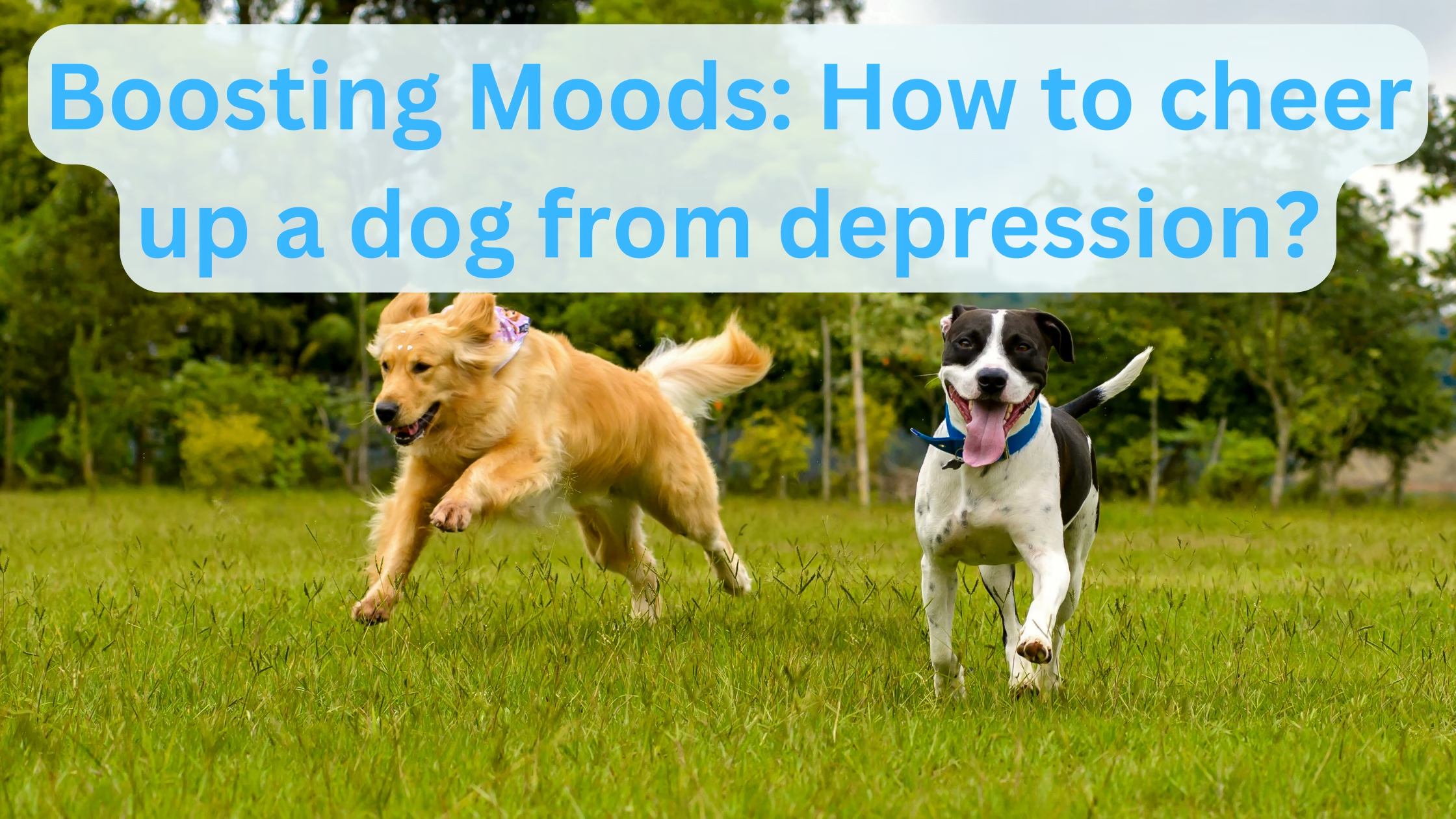Depression in dogs is an often overlooked but increasingly common issue that can be difficult to tackle.
Dogs provide companionship and bring joy to our lives, so when they become depressed, it can be heartbreaking.
Fortunately, there are many steps that owners can take to help their furry friends out of the doldrums.
In this article, we will explore how to cheer up a dog from depression and give them back their sparkle and energy.
ALSO READ: Mycequin Probiotic for Dogs: The Key to a Healthy Digestive System!
How to cheer up a dog from depression
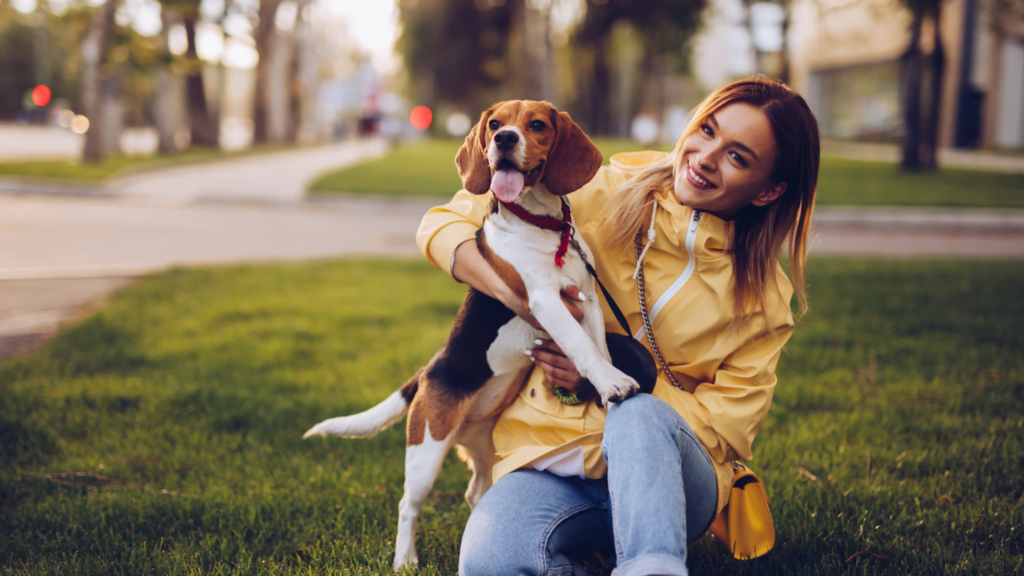
Depression is a severe condition affecting not only humans but animals.
Dogs can suffer from the same symptoms of depression that humans experience – feeling down and lacking enthusiasm for activities they previously enjoyed.
It’s important to recognize these signs in your pet so you can take steps to help them out of this challenging period in their lives.
The good news is there are many methods pet owners can use to help cheer up a dog suffering from depression.
Providing plenty of exercise and mental stimulation, including daily walks and playing interactive games with your pup, is essential for helping combat the condition.
Additionally, spending quality time with your canine friend and showing them extra love will help lift their mood considerably.
Finally, consulting with an animal behaviorist or veterinarian can also help manage depression in pets.
Finally, look into natural supplements such as fish oil or probiotics, which have been shown to improve moods in humans and animals alike.
Signs of Depression in Dogs
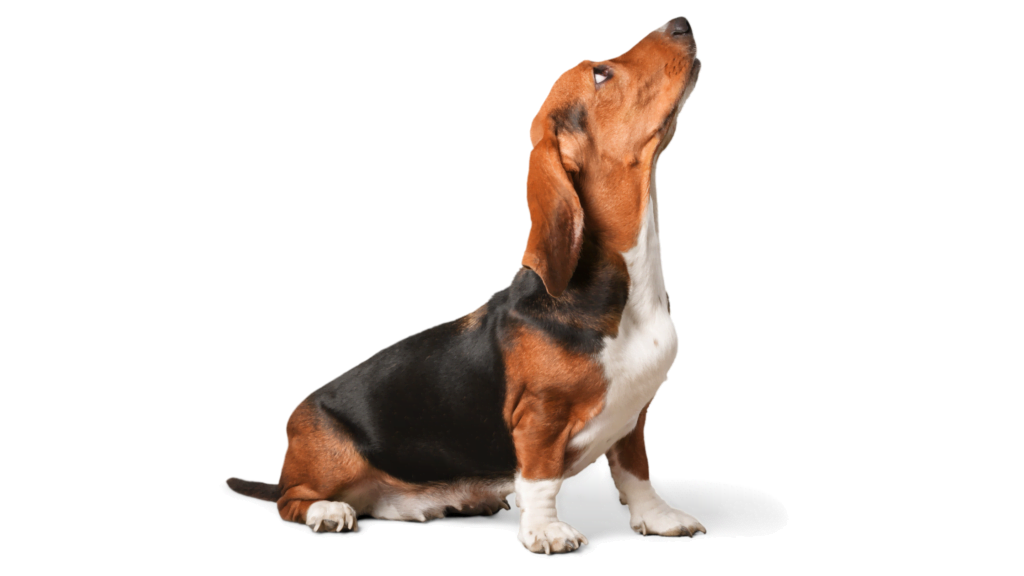
Depression is a severe condition affecting humans and animals alike, including our beloved four-legged friends.
Dogs can become depressed for various reasons, such as the death of a companion animal or human family member, a change in living environment, medical issues, or even boredom.
Suppose your dog has been exhibiting any of the following signs of depression. In that case, it’s essential to take action right away to cheer them up.
Typical symptoms of canine depression may include:
- Lethargy and lack of energy.
- Decreased appetite or, in some cases, an increase in appetite.
- Withdrawal from people or other animals.
- Excessive sleeping.
- General disinterest in playtime activities.
- Difficulty focusing on tasks.
- Loss of housebreaking skills.
- Changes in standard behavior patterns.
Causes of Depression in Dogs
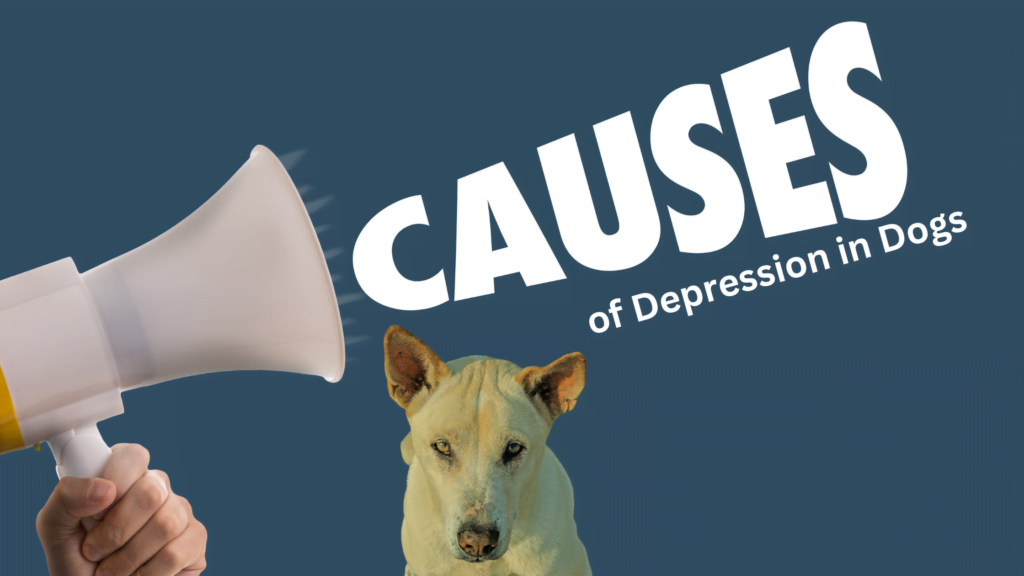
Depression can be a complex and debilitating condition affecting humans and animals alike.
While the causes of depression in dogs may differ from those of humans, understanding the underlying causes of depression can help us to better understand how to treat it.
When it comes to dogs, there are many potential causes of depression. Some may occur due to environmental changes, such as moving home or an owner leaving for extended periods.
Other reasons could be physical, such as a health issue or long-term illness causing discomfort or pain.
Age-related factors could also play a role; older dogs often suffer from loneliness and boredom as they slow down with age.
Additionally, some breeds are more prone to developing depression than others due to their genetics or temperament.
Treatment for Dog Depression
Depression is a severe issue for humans and animals alike, and dogs are no exception. Treatment for dog depression can vary depending on the severity of the problem.
Some cases may be treated with simple lifestyle changes. In contrast, more severe cases may require professional help from veterinarians or animal behavioralists.
Veterinarians have identified common signs of depression in dogs, such as lethargy, loss of appetite, excessive sleeping, and withdrawal from everyday activities.
If you recognize any of these symptoms in your pet, contact your vet to discuss treatment options. Milder forms of depression can often be alleviated by introducing stimulating activities such as walks or playtime into your pet’s routine.
Providing comfort items such as toys or blankets can also help ease stress levels in dogs feeling down.
Ways to help cheer up a Dog from Depression
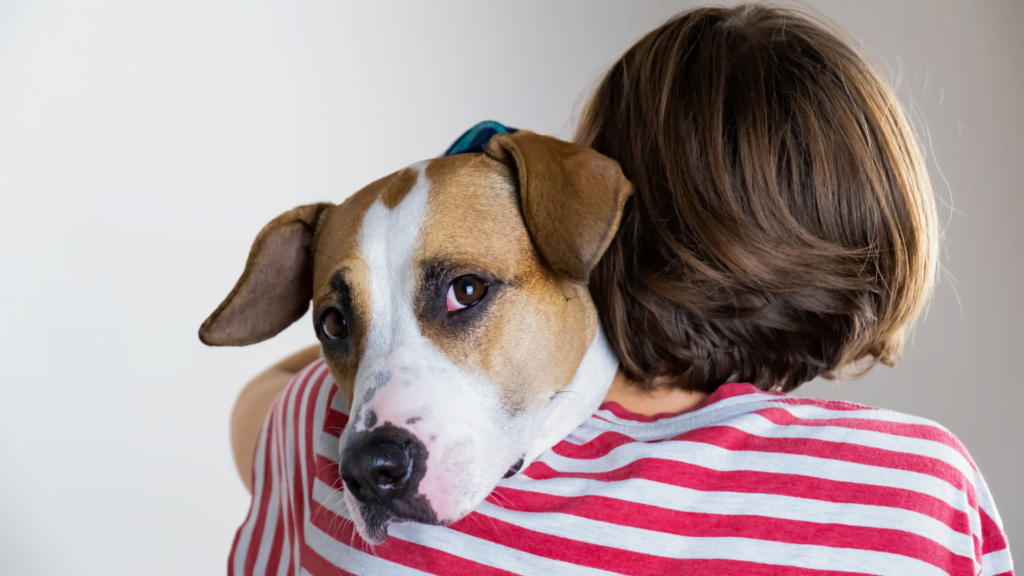
Depression in dogs is a severe issue caused by various factors, including loneliness, boredom, and health problems.
If your dog seems depressed or down, there are several ways to help them feel better.
Understanding their needs and how to meet them will help your pup get back on track to feeling happier and more relaxed.
The most important thing is to provide love and attention. Dogs need social interaction just like humans do!
Spending quality time with your pup will give them the reassurance they need that they aren’t alone.
Take some time each day to play with them, go for walks together, or share some cuddles on the couch; this kind of physical connection can overwhelmingly positively affect their mood.
Exercise and Playtime: The Key to Cheering Up A Depressed Dog
Pets bring joy and companionship into our lives, but sometimes they can fall into a state of depression.
Suppose your dog exhibits signs of depression, such as a lack of energy or appetite. In that case, it’s essential to take action immediately.
One of the most effective ways to cheer up a depressed pup is by providing plenty of exercise and playtime.
Exercise helps increase endorphins in your pup’s system, elevating their mood and making them feel better. Not only that, but regular exercise can also reduce stress levels for you and your pup!
When playing with your dog, variety is vital – try different activities like fetch or frisbee for outdoor fun.
You can also teach your pup some new tricks to increase mental stimulation or cuddle up with your dog and read them a book!
Routines and Structure
Routines and structure can be essential when trying to cheer up a dog from depression. Dogs are creatures of habit, so if you want to help your pup feel better, it’s essential to provide a stable daily routine.
This means providing regular meals at the same time each day and exercising regularly or taking walks outside.
You should also ensure that your pet gets enough sleep every night, as this will help keep their energy levels up and their mood in check.
Additionally, set aside time each day for quality bonding with your pup – brush their fur or play a game together – which will help strengthen the bond between you and provide them with much-needed emotional support.
Professional Care
Professional Care is essential for pet owners who want to help their dogs recover from depression.
It can be difficult for owners to determine if their dog is suffering from depression or simply experiencing a bad day.
So, consulting with a veterinarian or certified behaviorist is the first step in identifying and treating the issue.
Once the root cause of a dog’s depression has been identified, professional care may involve implementing behavioral modification techniques and/or providing medications to improve mood and reduce anxiety.
Depending on the severity of the condition, regular check-ups and ongoing monitoring may be necessary to ensure a successful recovery.
Professional care also provides pet owners with education about preventing future episodes of depression by recognizing warning signs early on and taking proactive steps that promote emotional wellness in their furry family members.
Adjusting Diet & Environment
Depression in dogs can be a difficult and heartbreaking situation. While medication may help, diet and environment play an essential role in helping cheer a dog up from depression.
Here are some tips on adjusting your pet’s diet and environment to help them better cope with their depression.
First, consider the diet of your pet. Make sure furry friends are eating a healthy balance of proteins, carbohydrates, fats, vitamins, and minerals so that their body has the fuel it needs for energy and vitality.
If you need help determining what foods are best for your pup, consult your veterinarian about developing a plan tailored to their needs.
Additionally, make sure they have plenty of fresh water available throughout the day; being dehydrated can lead to feelings of lethargy and sadness.
Conclusion: Taking the Steps
Depression in animals is a serious issue that requires immediate attention. The good news is that it can be managed with proper care and understanding.
It’s important to remember that depression in dogs requires patience and dedication from owners. Taking the steps outlined above will help to bring your pet back to its old self in no time.
It’s essential to start by identifying the cause of your dog’s depression, as this will help you decide what type of treatment they need.
From there, ensure you provide plenty of affection, exercise, and mental stimulation activities such as playtime or agility trials.
Additionally, ensure you provide them with a healthy diet with plenty of vitamins and minerals for optimal nutrition.
Finally, don’t forget that regular vet visits are essential when managing canine depression.

